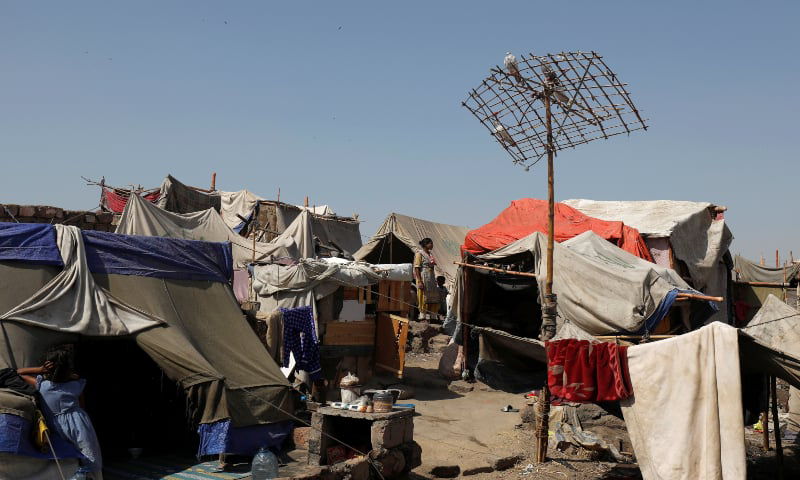KARACHI: Afghan refugees in Pakistan’s southern provinces said they wanted money, not vaccines, from the government to protect against the coronavirus disease (COVID-19) as their camps had not been hit by the virus.
Representatives of Afghan refugees said they had no information regarding an immunization program. Some claimed the disease had not killed anyone in their camps, raising concerns about a lack of awareness of the virus among the refugee population.
At least 1.4 million Afghan refugees live in 54 camps across the country, mostly in the northwestern Khyber Pakhtunkhwa and southwestern Balochistan provinces, both of which border Afghanistan. Refugee settlements are also located in large urban centers like Karachi and Islamabad.
“No one has contacted us for vaccinations,” Zahir Pashtun, a youth activist at the New Saranan refugee camp in southwestern Balochistan province, told Arab News.
“I don’t think that even one percent (of refugees) will get the jab,” he said, adding: “Some are even convinced they will die if they get immunized.”
Pashtun said the virus had not killed anyone in his refugee camp but had severely damaged the financial conditions of the mostly daily wage laborers in his community, as the virus had wreaked havoc on the economy since last March.
In Pashtun’s camp, a worker said the government should give refugees money instead of vaccinations.
Last month, the National Command and Operation Center, the senior body for Pakistan’s coronavirus response, said the vaccination of foreigners living in the country had been approved, and the Health Ministry said the process would begin in the first week of April. It has yet to commence.
Zabihullah Ahmadi, a teacher at Sindh’s Syed Jamaluddin Afghani refugees’ school, said there was “no sign or sense” of COVID-19 in his community.
“When the government wants to vaccinate them (refugees), it will have to extend awareness about the virus. But even then, a majority of Afghan refugees may not take it as they don’t accept it as a disease,” Ahmadi added.
Over 14,000 people have died from COVID-19 in Pakistan since March 2020. There were 4,500 deaths in Sindh province and a little over 200 deaths in Balochistan.
Qaiser Afridi, a spokesperson for the UN High Commissioner for Refugees, told Arab News that it would raise awareness “once a system is in place to register the numbers,” adding that it had constituted a technical working group for refugees to deal with the issue.
“Refugees will be included in the system meant for the Pakistani population. There is no separate system in place for them,” Afridi said, adding that Afghan nationals would register online like all other citizens by using their Proof of Registration cards and would then be invited to the nearest Adult Vaccination Center at government health facilities.
“There will be no vaccination inside the refugee villages,” he said.
“We haven’t seen anyone die of COVID-19,” Mullah Abdul Rehman, an Afghan refugee in southern Sindh province, told Arab News.
Rehman said that he always kept a mask with him but only used it after crossing the Sohrab Goth bridge towards Karachi.
He said his refugee settlement was a “mask-free land,” adding: “Since we see no coronavirus patients, people think it is not as important as the polio vaccine.”
In refugee camps beyond the southern provinces, Afghans have adopted a different attitude. In Khyber Pakhtunkhwa province, refugees are more inclined to get themselves vaccinated.
“We have heard about the vaccine and are doing our best to create awareness about it since COVID-19 is a fatal disease,” Mohibullah Salman, a youth leader in the province’s Jalala refugee village, told Arab News.
“Youth groups are creating awareness and people are beginning to show their willingness to participate in the immunization drive.
“Once the government begins the vaccination campaign, a large number of refugees will join the queue.”

Afghan refugees hope peace talks will finally take them ‘home’

